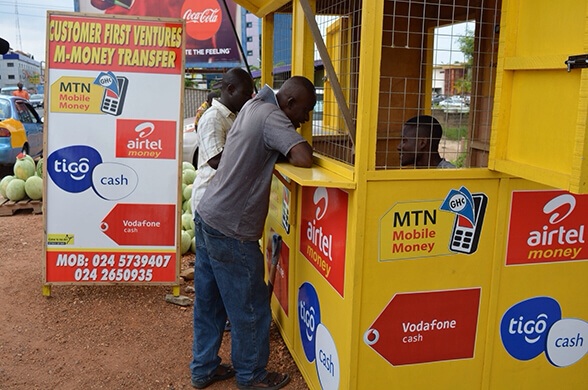76% of Ghanaians think e-levy is a bad idea – Afrobarometer Report
Majority of Ghanaians are skeptical that the newly implemented electronic transfer levy will fund development programs, the latest Afrobarometer report has revealed.
Afrobarometer, a pan-African, nonpartisan survey research network in its recent survey said the majority of Ghanaians are not in support of the e-levy.
“Three-fourths of Ghanaians disapprove of the recently passed electronic transaction levy (e-levy). The government introduced the e-levy on 1 May in a bid to widen the tax net. However, 76% of Ghanaians think it is a bad idea and will mean a greater tax burden on the poor and ordinary citizens.
“Many do not trust that the government will use the revenues generated to fund development programs, and citizens are almost evenly split as to whether they will continue to use electronic financial transactions,” the survey said.

E-levy is a tax applied on transactions made on electronic or digital platforms. The tax is one of the measures the government introduced to increase the country’s tax to GDP ratio from 12 5% in 2021 to 20% by 2024.
The government said it would use the revenue for entrepreneurship, youth employment, digital infrastructure and cyber security, and provision of road infrastructure.
It was presented by the government to be the panacea for the country’s economic challenges, but a month after its implementation, it failed to yield the projected revenue.
When it comes to usage, Ghanaians are about evenly split as to whether they will continue to use electronic financial transactions.
Forty-seven percent said they will continue to use electronic financial transactions while 49 percent have vowed not to engage in any electronic transactions.

Per the key findings only two in 10 Ghanaians, thus 19 percent endorsed the new tax.
The study also shows that the majority of Ghanaians believe there are several important goals that a tax revenue system must achieve, including ensuring that people understand the taxes they owe and generally reducing the tax burden.

What is the E-levy?
The E-levy is a tax applied on transactions made on electronic or digital platforms. The Minister of Finance announced in Parliament the intention to implement the bill during the presentation of the 2022 Budget.
The tax is one of the measures the government plans to use to increase the country’s tax to GDP ratio from 12 5% in 2021 to 20% by 2024.
The E Levy is charged at the rate of 1.50% on the following transactions:
•Mobile Money transfers done between accounts on the same electronic money issuer
•Mobile Money transfers from an account on one electronic money issuer to a recipient on another electronic money issuer
•Transfers from bank accounts to mobile money accounts
•Transfers from mobile money accounts to bank accounts
•Bank transfers on an instant pay digital platform or application originating from a bank account belonging to an individual are subject to a threshold to be determined by the Minister of Finance.
However, not all transfers will be affected by the E Levy.
The levy does not apply to the following types of transfers:
• A cumulative transfer of One Hundred Ghana Cedis a day made by the same person
•A transfer between accounts owned by the same person
•A transfer for payment of taxes, fees, and charges on the Ghana.Gov System or any other Government of Ghana designated payment system
•Specified merchant payments
•Transfers between principal, agent, and master agent accounts and
•Electronic clearing of cheques
The Charging Entities are:
- Electronic Money Issuers
- Payment Service Providers
- Banks
- Specialized Deposit-Taking Institutions
- Other Financial Institutions are prescribed by Regulations made under the Act.
The levy had divided Parliament, with the majority pushing for approval while the Minority kicked against it.
There was a split vote of 12 for each side at parliament’s finance committee until the chairman cast the decisive vote favoring the proposal.
Parliament degenerated into fisticuffs at a meeting to approve the levy prompting an adjournment to 18 January 2022.
The Chamber turned chaotic as MPs pushed, shoved, and punched each other during the heated exchanges that many observers have since condemned.
This was after the Speaker of Parliament, Alban Bagbin had left and delegated the First Deputy Speaker, Joe Osei Owusu, to take over proceedings.
The Minority had said it would do all it could to ensure that the bill did not see the light of day, insisting it was not in the best interest of Ghanaians.
But Parliament approved the policy without the participation of NDC MPs who had staged a walkout during the E-levy debate on Tuesday, March 29, 2022.
Read the full report below



